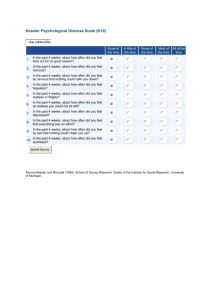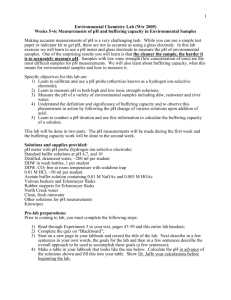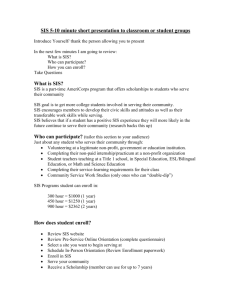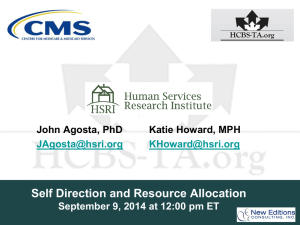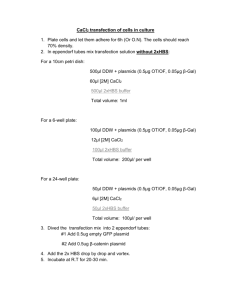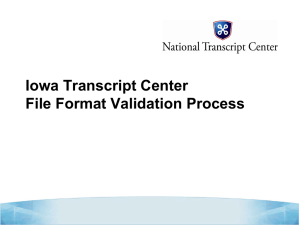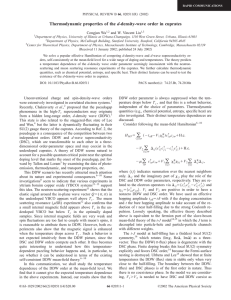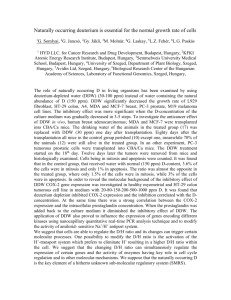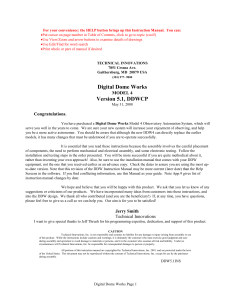Developmental Disabilities Medicaid Waiver Fact Sheet
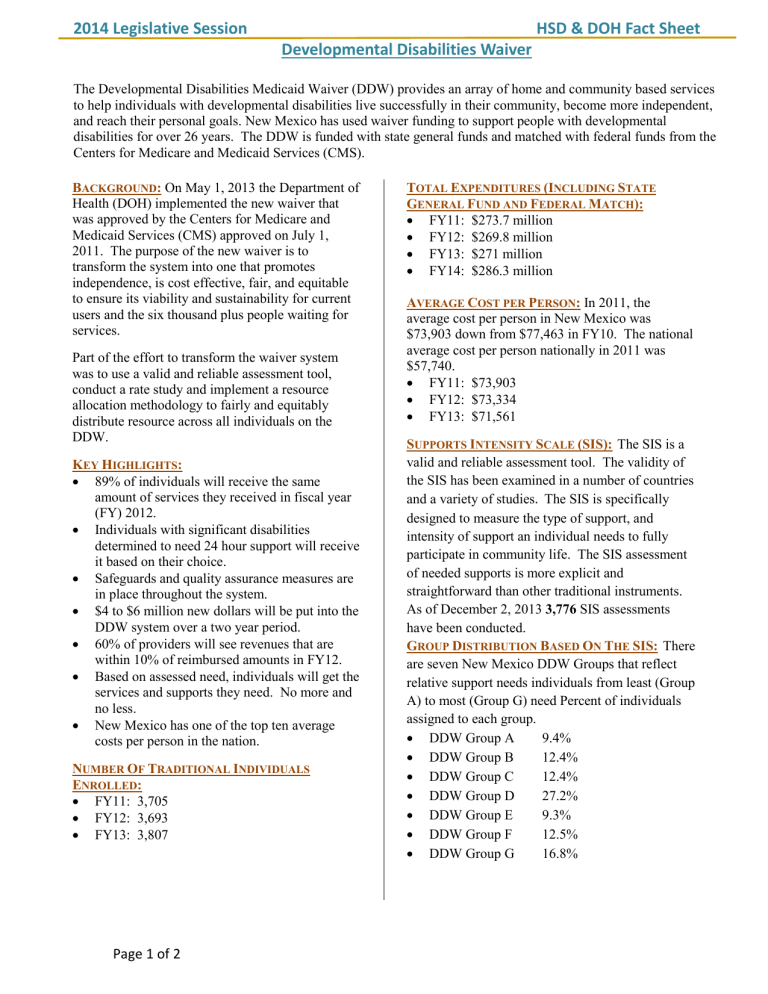
2014 Legislative Session
Developmental Disabilities Waiver
HSD & DOH Fact Sheet
The Developmental Disabilities Medicaid Waiver (DDW) provides an array of home and community based services to help individuals with developmental disabilities live successfully in their community, become more independent, and reach their personal goals. New Mexico has used waiver funding to support people with developmental disabilities for over 26 years. The DDW is funded with state general funds and matched with federal funds from the
Centers for Medicare and Medicaid Services (CMS).
B ACKGROUND : On May 1, 2013 the Department of
Health (DOH) implemented the new waiver that was approved by the Centers for Medicare and
Medicaid Services (CMS) approved on July 1,
2011. The purpose of the new waiver is to transform the system into one that promotes independence, is cost effective, fair, and equitable to ensure its viability and sustainability for current users and the six thousand plus people waiting for services.
Part of the effort to transform the waiver system was to use a valid and reliable assessment tool, conduct a rate study and implement a resource allocation methodology to fairly and equitably distribute resource across all individuals on the
DDW.
K EY H IGHLIGHTS :
89% of individuals will receive the same amount of services they received in fiscal year
(FY) 2012.
Individuals with significant disabilities determined to need 24 hour support will receive it based on their choice.
Safeguards and quality assurance measures are in place throughout the system.
$4 to $6 million new dollars will be put into the
DDW system over a two year period.
60% of providers will see revenues that are within 10% of reimbursed amounts in FY12.
Based on assessed need, individuals will get the services and supports they need. No more and no less.
New Mexico has one of the top ten average costs per person in the nation.
N UMBER O F T RADITIONAL I NDIVIDUALS
E NROLLED :
FY11: 3,705
FY12: 3,693
FY13: 3,807
T OTAL E XPENDITURES (I NCLUDING S TATE
G ENERAL F UND AND F EDERAL M ATCH ):
FY11: $273.7 million
FY12: $269.8 million
FY13: $271 million
FY14: $286.3 million
A VERAGE C OST PER P ERSON : In 2011, the average cost per person in New Mexico was
$73,903 down from $77,463 in FY10. The national average cost per person nationally in 2011 was
$57,740.
FY11: $73,903
FY12: $73,334
FY13: $71,561
S UPPORTS I NTENSITY S CALE (SIS): The SIS is a valid and reliable assessment tool. The validity of the SIS has been examined in a number of countries and a variety of studies . The SIS is specifically designed to measure the type of support, and intensity of support an individual needs to fully participate in community life. The SIS assessment of needed supports is more explicit and straightforward than other traditional instruments.
As of December 2, 2013 3,776 SIS assessments have been conducted.
G ROUP D ISTRIBUTION B ASED O N T HE SIS: There are seven New Mexico DDW Groups that reflect relative support needs individuals from least (Group
A) to most (Group G) need Percent of individuals assigned to each group.
DDW Group A 9.4%
DDW Group B 12.4%
DDW Group C 12.4%
DDW Group D 27.2%
DDW Group E 9.3%
DDW Group F 12.5%
DDW Group G 16.8%
Page 1 of 2
SIS R EASSESSMENTS : During the first year of implementation of the SIS, reassessments are an assurance offered to individuals transitioning into the new waiver. Approximately, 708 individuals have requested a reassessment. Out of 310 reassessments conducted, 28.1% NM DDW group assignments stayed the same, 1.6% decreased, and
70.3% increased to higher groups between the initial assessment and the reassessment. Based on an analysis, changes to NM DDW group assignments may be attributed to changes in life condition, health status, the respondents (people who participate in the assessment) or other unique factors.
T ECHNICAL A SSISTANCE
C OST T O C ONDUCT SIS A SSESSMENTS : In fiscal years 2011 through 2013, the state paid AAIDD approximately $3.3 million dollars to conduct SIS assessments and trainings (for respondents, other stakeholder and state staff) as requested.
M ANAGEMENT O F A TTRITION : Through enhanced attrition management, the DOH will actively replace people as they leave the program.
Attrition rates from the DDW averages about 70 individuals each year. In the past attrition was used only to cover the need for expedited allocations to the waiver. Beginning in FY13 attrition will be used to make a combination of regular and expedited allocations from the waiting list. This will stabilize program enrollment and support program growth over time.
DOH is committed to providing the necessary information to individuals, providers and teams to understand the system changes being made and how to use the information for person centered planning and to develop budgets. Technical assistance is available from all DDSD regional offices.
Metro Regional Office
Main: (505) 841-5500
Toll Free: (800) 283-5548
Northwest Regional Office
Main: (505) 863-9937
Toll Free: (866) 862-0448
Northeast Regional Office
Main: (575) 758-5934
Toll Free: (866) 315-7123
Counties of Bernalillo, Sandoval, Torrance, and Valencia
Counties of Cibola, McKinley and San Juan
Counties of Colfax, Harding, Los Alamos,
Mora, Rio Arriba, San Miguel, Santa Fe, Taos and Union
Southwest Regional Office
Main: (575) 528-5180
Toll Free: (866) 742-5226
Southeast Regional Office
Main: (575) 624-6100
Toll Free: (866) 895-9138
Counties of Catron, Dona Ana, Grant,
Hidalgo, Luna, Otero, Sierra and Socorro
Counties of Chaves, Curry, De Baca, Eddy,
Guadalupe, Lea, Lincoln, Quay and Roosevelt
